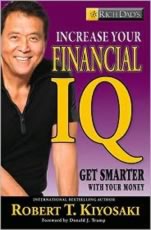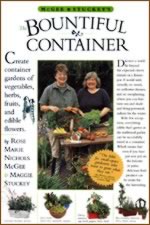The four pillars of investing

For the past year, I've been looking for a book to recommend for novice investors, a book that would offer sensible advice without becoming too technical. I believe I've finally found that book -- The Four Pillars of Investing,
In the book, William Bernstein describes how to build a winning investment portfolio. He doesn't focus on the details — he tries to explain fundamental concepts so that readers will be able to make smart investment decisions on their own. Continue reading...
50 prosperity classics in a nutshell
 Earlier today I shared my review of 50 Prosperity Classics by Tom Butler-Bowdon. The author selected fifty important prosperity books and summarized them in just a few pages. For each book, he also provided a one-sentence capsule summary.
Earlier today I shared my review of 50 Prosperity Classics by Tom Butler-Bowdon. The author selected fifty important prosperity books and summarized them in just a few pages. For each book, he also provided a one-sentence capsule summary.
I think these one-sentence summaries are clever, so I contacted Butler-Bowdon for permission to reprint them, which he kindly granted. I've reproduced them below, grouping them into the book's four broad categories. For additional information, I've linked to the Amazon page for each (though I encourage you to borrow the volumes that interest you from the public library).
Please note that I am not endorsing these books. I'm merely sharing the summaries with you for edification and entertainment.
Book Review: 50 Prosperity Classics
Two years ago I wrote a rave review of 50 Success Classics by Tom Butler-Bowdon. Its concept was simple: Butler-Bowdon selected fifty important books from success literature. He summarized each in only a few pages, distilling its key points. He also provided biographical information on the authors, and attempted to explain why each book was relevant in a Big Picture sort of way.
Over the past few years, Butler-Bowdon has written several similar books:
A Proven Formula
The entries in the "50 Classics" series follow a proven formula. Each chapter is devoted to a single book, and begins with a couple of short excerpts that capture the essence of the work. For example, in his summary of The Millionaire Next Door, Butler-Bowdon shares this quote:
Tim Ferriss on the Power of Personal Entrepreneurship
I write a lot about saving money. Like many of you, I've found frugality an excellent way to widen the gap between what I earn and what I spend. Frugality helped me get out of debt, increase my monthly cash flow, and ultimately begin to build savings. Thrift is a key component to personal finance.
But to be successful, to build wealth, you must also increase your income. You might do this by changing careers, or by obtaining for a promotion, or by asking for a raise. You might invest in real estate. Or you might start your own business.
I recently interviewed Timothy Ferris, author of The 4-Hour Workweek. I've already shared parts of our conversation:
How to take a sabbatical

In his book, The 4-Hour Workweek, Tim Ferriss proposes that we shift our focus from end-of-life "macro" retirement to more frequent mini-retirements, which might be spaced throughout a working career. Consider it a type of sabbatical, but one that you can take multiple times throughout your working life -- and not reserved for academics or the super rich.
Ferriss took time to speak with me about his notion of mini-retirements. Last week, I published the first part of the interview, in which he discussed using mini-retirements to get more out of life. In today's excerpt, he provides some real-life examples of how to put this concept in action.
Using mini-retirements to get more out of life: An interview with Timothy Ferriss
On a cool Thursday morning last July, I woke early to walk into the hills outside Wells in Somerset County, England. After three-quarters of an hour, I reached a point with a broad vista of the surrounding countryside. I leaned against a fence post and took in the view — I could have sworn I was looking at Hobbiton.

After a few minutes of silent contemplation, I walked back to town. I took a brief tour of the Wells Cathedral before picking up a bite to eat a nearby bakery. I then joined the rest of my group for our drive to Stonehenge. In the evening, we stopped in Dorchester, where Kris and I gave ourselves a self-guided tour of the city.
We were standing in the Maumbury Rings when I announced, "I want to retire here." Continue reading...
Robert Kiyosaki: Increase your financial IQ

 The problem with the standard financial advice is that it's bad advice. You've been told to work hard, save money, get out of debt, live below your means, and invest in a well-diversified portfolio of mutual funds. But this advice is obsolete — so argues Robert Kiyosaki in his new book, Rich Dad's Increase Your Financial IQ.
The problem with the standard financial advice is that it's bad advice. You've been told to work hard, save money, get out of debt, live below your means, and invest in a well-diversified portfolio of mutual funds. But this advice is obsolete — so argues Robert Kiyosaki in his new book, Rich Dad's Increase Your Financial IQ.
Increase Your Financial IQ is the latest installment in Kiyosaki's tremendously popular "Rich Dad" series of books. These best-sellers have motivated many people (including me) to take control of their financial lives. But some (including me) have expressed concerns over the author's advice:
- Kiplinger's Personal Finance: They say they want you to be rich
- John T. Reed: An analysis of Rich Dad, Poor Dad
Kiyosaki loves to play the rogue, offering unconventional suggestions for building wealth. He's a vocal detractor of mutual funds, for example, and frequently seems to be pushing a new "hot" investment: real estate, oil, gold, silver. He likes to make provocative claims like "people should not live below their means". Continue reading...
Get Rich Slowly!
Today is the second anniversary of Get Rich Slowly. In celebration, I'm reprinting this revised version of the article that started it all, a l-o-n-g post from my personal blog dated 26 April 2005. One year later — on 15 April 2006 — this site was born.
Today's entry is long and boring — it's all about the keys to wealth, prosperity, and happiness. Over the past few months, I've read over a dozen books on personal finance. Recurring themes have become evident. I want to share them with you.
These books often have embarrassingly bad titles, seemingly designed to appeal to the get-rich-quick crowd:
<The Bountiful Container: Gardening in small spaces
 I've been gardening for almost fifteen years. I started with flowers, added herbs and vegetables, then a few fruits, then a lot more. I've gardened in plots and pots and raised beds. I've drooled over bedding plants, spent too much on whatever was my obsession-of-the-moment (bulbs! daylilies! gooseberries! ornamental grasses!), and have certainly read my fair share of plant books and magazines.
I've been gardening for almost fifteen years. I started with flowers, added herbs and vegetables, then a few fruits, then a lot more. I've gardened in plots and pots and raised beds. I've drooled over bedding plants, spent too much on whatever was my obsession-of-the-moment (bulbs! daylilies! gooseberries! ornamental grasses!), and have certainly read my fair share of plant books and magazines.
By this time, I'm somewhat jaded about most gardening educational materials — I find they are often at one extreme or another: either an all-around reference that is about as exciting to read as The Merck Index, or beautiful but vapid plant-porn packed with color photos of planting schemes and "outdoor rooms" that can only be reproduced in Southern California!
However, I give a rave review — and two green thumbs up — to a recent find on container gardening: The Bountiful Container by Rose Marie Nichols McGee and Maggie Stuckey (2002). This book was suggested last spring by a reader named Beth in J.D.'s overview of square-foot gardening. It will find a permanent place on my gardening reference shelf, despite the fact that I don't plan to grow anything new in a container in the foreseeable future. (Although this book just may have changed my mind.)
<Luck Is No Accident: 10 ways to get more out of work and life

How many of you believe this? Why do you believe it? Are you one of the lucky ones? Or does luck seem to pass you by? And just what is luck, anyhow?
According to John D. Krumboltz and Al S. Levin, there's no such thing as luck. In fact, they shirk the use of the word in their book Luck Is No Accident: Making the Most of Happenstance in Your Life and Career, opting instead to use "happenstance", a term with less baggage. Krumboltz and Levin argue that happenstance isn't something that randomly effects us — it's something that we create out of the chance situations and encounters that run through our lives: Continue reading...



